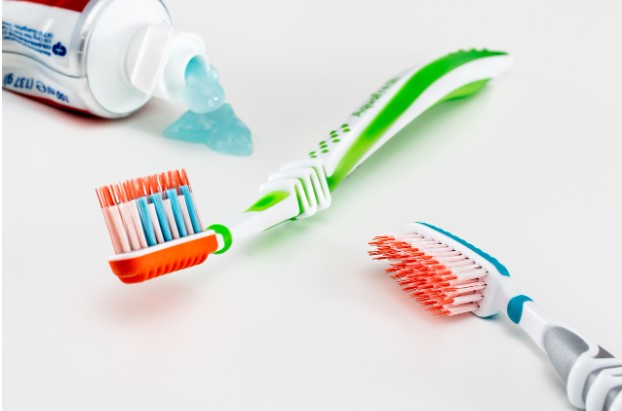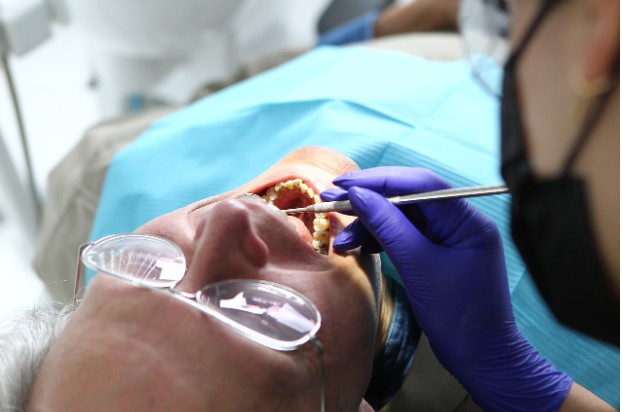Good oral health is essential for overall well-being, influencing not only your teeth and gums but your overall health too. Many people underestimate the importance of maintaining their oral hygiene and often fall into unhealthy habits. Fortunately, adopting the right dental care routine can lead to a lifetime of healthy teeth, gums, and a beautiful smile. In this guide, we’ll explore the key practices that ensure you maintain good oral health.

The Importance of Oral Health
Oral health goes beyond having a bright smile—it plays a critical role in preventing numerous health problems. Poor oral hygiene can lead to cavities, gum disease, bad breath, and even tooth loss. Additionally, oral health is linked to other health issues, such as heart disease, diabetes, and respiratory problems. By prioritizing oral hygiene, you can prevent these health complications and promote better overall health. Good oral care practices help maintain your teeth and gums’ functionality, comfort, and appearance.
Regular Dental Checkups and Cleanings
Even if you maintain excellent oral hygiene at home, regular visits to the dentist are crucial for maintaining your oral health. Dentists, like the experienced team at Stone Creek Dental, can detect potential issues early, such as cavities or gum disease, and provide preventive care, including professional cleanings to remove plaque and tartar. It’s recommended to visit your dentist at least twice a year for a checkup and cleaning. If you have specific oral health concerns, your dentist may suggest more frequent visits to ensure your teeth and gums remain in top condition.
Brushing Your Teeth Properly
Brushing your teeth correctly is one of the most important steps in maintaining good oral health. You should brush your teeth at least twice a day—once in the morning and once before bed. Using a soft-bristled toothbrush and fluoride toothpaste, brush in gentle circular motions for at least two minutes. Don’t forget to brush the front, back, and chewing surfaces of your teeth, as well as your tongue, to remove bacteria and prevent bad breath. Make sure to replace your toothbrush every three to four months, or sooner if the bristles appear frayed.
Flossing: The Key to Removing Plaque Between Teeth
Brushing alone doesn’t remove plaque and food particles that can get stuck between your teeth. This is where flossing comes in. Flossing helps remove plaque and debris from areas that a toothbrush can’t reach. Ideally, you should floss once a day, using about 18 inches of floss to clean between each pair of teeth. Be gentle to avoid injuring your gums, and make sure to curve the floss around each tooth to clean below the gumline. Regular flossing reduces your risk of gum disease and cavities.
The Role of Diet in Oral Health
Your diet plays a significant role in maintaining good oral health. Foods high in sugar, such as candies and sugary drinks, promote the growth of bacteria that cause tooth decay. Instead, opt for a balanced diet rich in fruits, vegetables, whole grains, and lean proteins. Foods like apples, carrots, and celery help clean teeth naturally while providing essential nutrients. Additionally, drinking plenty of water throughout the day helps wash away food particles and bacteria, keeping your mouth hydrated and reducing the risk of cavities.
Avoiding Harmful Habits
Certain habits can negatively impact your oral health, so it’s important to avoid them whenever possible. Smoking is one of the worst habits for your teeth and gums, as it leads to staining, gum disease, and an increased risk of oral cancer. Additionally, chewing on hard objects like ice or pens can cause tooth fractures, while grinding your teeth at night can wear down enamel. If you’re prone to grinding, ask your dentist about mouthguards or other treatments. Reducing your intake of alcohol and acidic drinks, like soda and citrus juices, can also help protect your teeth.

Maintaining good oral health is an ongoing process that requires consistent care and attention. By following the guidelines of brushing and flossing daily, eating a healthy diet, visiting your dentist regularly, and avoiding harmful habits, you can keep your teeth and gums in excellent condition for years to come. Remember, a healthy mouth contributes to a healthy body, so take the necessary steps to maintain your oral health today!






